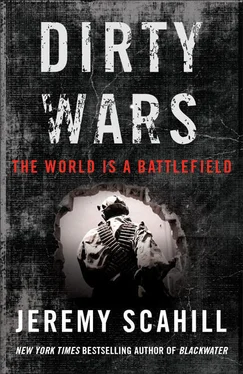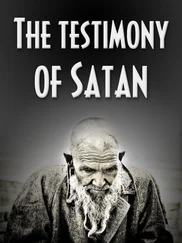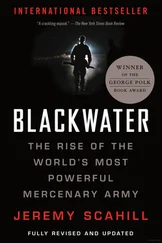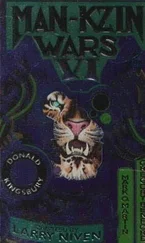Awlaki said he was “so immersed with the author I would feel that Sayyid was with me in my cell speaking to me directly. There was something about my reading in prison: I could feel the personality of the author through his words. So even though I was in solitary confinement I was never alone.” Awlaki said that he tried to limit his reading to thirty pages a day, “But because of the flowing style of Sayyid I would read between 100–150 pages a day. In fact I would read until my eyes got tired. My left eye would get exhausted before the right eye so I would close it with my hand and carry on reading with my right eye until it can handle it no more and would just shut down. My vision started deteriorating especially in my left eye. Was it because of too much reading, or was it because of poor lighting, Allah knows best. I found that deteriorating eyesight along with kidney problems were the two most common complaints of the prisoners.”
He also read the works of Charles Dickens ( Hard Times ), Shakespeare ( King Lear ) and Herman Melville ( Moby Dick ). “There was a particularly mean Prison Head who decided to ban me from having any Islamic books,” Awlaki later wrote. “Shakespeare was the worst thing I read during my entire stay in prison. I never liked him to start with. Probably the only reason he became so famous is because he was English and had the backing and promotion of the speakers of a global language.” Awlaki, however, praised Dickens’s works. “What fascinated me with these novels were the amazing characters Dickens created and the similarity of some of them to some people today. That made them very interesting,” he wrote. “For example: the thick and boastful Mr. Josiah Bounderby of Coketown was similar to George W. Bush; Lucy’s father, Mr. Gradgrind, was similar to some Muslim parents who are programmed to think that only Medicine and Engineering are worthy professions for their children; the amazing cruelness of Stephen Blackpool was similar to some people who appear on the surface to be decent and kind human beings; and Uriah Heep was similar to some pitiful Muslims today.”
Awlaki later reflected on the food in prison. Describing kudam, the “staple breads of prisoners and soldiers in Yemen,” Awlaki wrote: “[They] are supposed to be multigrain. That is how it was in the old days. Now they are most likely whole-wheat. They are fermented so their taste resembles San Francisco’s sourdough bread (those who live in America would know what I am talking about). They consist of a solid crust (and I mean really solid); they could be used for fights.” He recalled, “Before my imprisonment, I had discussions with former prisoners about how it was in jail, so there was some mental preparation for what was to come. I remember the words of one of the shuyukh [religious figures] who had been to this same prison. He said the food was so horrible, so I was expecting the worst.” His first morning in the prison, Awlaki recalled, “I began hearing the opening of the doors and soldiers screaming at prisoners to pick up their meals. It was my turn and I was already awake. They opened my door and there were two soldiers, one holding a bucket and the other dragging a sack full of kudam. The one with the bucket took my plate and poured in it a cupful of steaming pinto beans while the other handed me six” pieces of kudam. After a few weeks, he said, he had concluded: “This food stinks.”
Eventually, the prison authorities permitted Awlaki to receive home-cooked meals from his family twice a week. “However the prison administration would use this as a method to pressure prisoners. Under the pretext of searching our food for contraband items I would sometimes receive my food in an inedible state. They once mashed together my rice, chocolate cake and salad and then poured over it a package of cranberry juice. Even the guard who delivered the meal to me was saddened by the state of my food,” Awlaki recalled. Prison, he said, reaffirmed his commitment to his religion. “Islam is not something that we use to fill in the spiritual compartment of our life while we leave everything else to our whims and desires. Islam should rule over every aspect of our life.”
After Anwar Awlaki had been locked up for seventeen months, the tremendous pressure from tribal groups that Saleh’s regime had to keep on his side to maintain power, and from Anwar’s influential family, finally forced his release. Sheikh Saleh bin Fareed had gone to see the Yemeni president to offer his personal guarantees that Anwar would not cause trouble if he was set free. “OK, if you have anything against Anwar, please take him to court,” bin Fareed told the Yemeni president. “And if you prove anything, you kill him. We don’t mind. If you have anything, any proof against him, we don’t mind if you take him to court and you kill him. If you don’t, then give us our son.” The president, he said, told him, “To be honest, I have nothing against Anwar, whatsoever.” That day, the order was given to release Awlaki. “The Americans were not happy about it,” said bin Fareed.
A US diplomatic cable about Awlaki’s release elevated Anwar to a “sheikh” and referred to him as “the alleged spiritual advisor to two of the 9/11 hijackers.” The cable added that Yemeni government “contacts” told US officials that “they do not have sufficient evidence to charge [Awlaki] and can no longer hold him illegally.” A few years later, the US government would characterize Awlaki’s imprisonment as evidence he had long been involved with terror plots against the United States. Without providing any evidence to support the claim, the US Treasury Department statement alleged Awlaki “was imprisoned in Yemen in 2006 on charges of kidnapping for ransom and being involved in an al-Qa’ida plot to kidnap a U.S. official, but was released from jail in December 2007 and subsequently went into hiding in Yemen.”

19. “America Knows War. They Are War Masters.”
SOMALIA, 2004–2006—While JSOC came to dominate the expanding killing fields in Iraq, Afghanistan and elsewhere, Somalia continued its descent into chaos. The murderous warlords who were running the CIA’s targeted kill/capture operations were widely feared and reviled. By 2004, the Agency’s outsourced Somalia campaign was laying the groundwork for a spectacular series of events that would lead to an almost unthinkable rise in the influence of al Qaeda in the Horn of Africa. But it wasn’t the CIA’s warlord program alone that would spur a major uprising in Somalia. The civilian tolls the wars were taking in Iraq and Afghanistan, and the abuses at Abu Ghraib and Guantánamo, gave credence to the perception that the United States was waging a war against Islam. While the United States backed its own warlords in Mogadishu, Washington’s post-9/11 actions led to the formation of a coalition of former warlords and religious movements that would challenge the rule of the US proxies in Somalia. It was blowback sparked by US policies in Somalia and abroad.
Yusuf Mohammed Siad told me he was first approached by the CIA in Dubai in 2004. The notorious Somali warlord, who goes by the nom de guerre Indha Adde, or White Eyes, was—like Mohamed Qanyare—among the thugs who divided and destroyed Somalia during the civil war that raged through the 1990s. Indha Adde violently took control of the Lower Shabelle region, appointing himself governor of a reportedly brutal paramilitary occupation, earning him the moniker “The Butcher.” He ran drug and weapons trafficking operations from the Merca port and cashed in on the lawlessness. Like Qanyare, he controlled a sizable militia and an array of technicals—weaponized pickup trucks. But unlike Qanyare, Indha Adde maintained a friendly relationship with the small group of Islamic radicals who dotted the chaotic Somali landscape of the 1990s. He openly admitted to providing shelter and protection to some of the very men Washington was hunting. That made him an attractive potential asset for the CIA. In Dubai, he said, he met the CIA’s chief of East Africa operations. “They offered me money, they offered funding for the region I was controlling, they offered me influence and power in Somalia through US cooperation,” he recalled when I met him at one of his homes in Mogadishu in June 2011. “The CIA was always telling me that the men I was protecting were criminals who bombed the US embassies, who were also a threat to the world. They told me they wanted me to hand these guys over to them.”
Читать дальше













